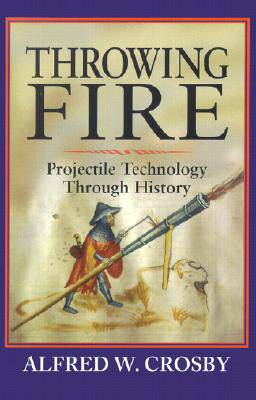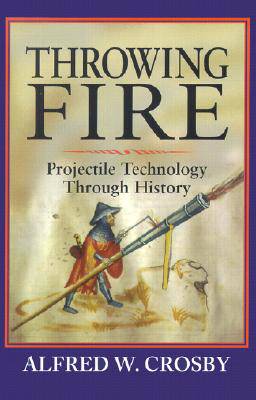
- Retrait gratuit dans votre magasin Club
- 7.000.000 titres dans notre catalogue
- Payer en toute sécurité
- Toujours un magasin près de chez vous
- Retrait gratuit dans votre magasin Club
- 7.000.0000 titres dans notre catalogue
- Payer en toute sécurité
- Toujours un magasin près de chez vous
136,95 €
+ 273 points
Format
Description
In Throwing Fire, historian Alfred W. Crosby looks at hard, accurate throwing and the manipulation of fire as unique human capabilities. Humans began throwing rocks in prehistory and then progressed to javelins, atlatls, bows and arrows. We learned to make fire by friction and used it to cook, drive game, burn out rivals, and alter landscapes to our liking. Our exploitation of these two capabilities figured in the extinction of many species, and may have played a role in the demise of Neanderthals. In historic times we invented catapults, trebuchets, and such flammable liquids as Greek Fire, a napalm-like substance that stuck to whatever it hit and could not be extinguished with water. About 1,000 years ago we invented gunpowder, which led to guns and rockets, enabling us to literally throw fire. Gunpowder weaponry accelerated the rise of empires and the advance of European imperialism. In the 20th century, gunpowder weaponry enabled us to achieve unprecedented mayhem--the most destructive wars of all time. This trend peaked at the end of World War II with the V-2 and atomic bomb, at which point species suicide became possible. Faced with possible extinction should we experience World War III, we have turned our projectile talents to space travel which may make it possible for our species to migrate to other bodies of our solar system and even other star systems. Alfred W. Crosby is the author of the widely popular and ground-breaking books The Measure of Reality (Cambridge, 1996), America's Forgotten Pandemic (Cambridge, 1990) and Ecological Imperialism (Cambridge, 1986). He taught at the University of Texas, Austin for over 20 years. His books have received the Ralph Waldo Emerson Prize, the Medical Writers Association Prize and been named by the Los Angeles Times as among the best books of the year.
Spécifications
Parties prenantes
- Auteur(s) :
- Editeur:
Contenu
- Nombre de pages :
- 218
- Langue:
- Anglais
Caractéristiques
- EAN:
- 9780521791588
- Date de parution :
- 08-04-02
- Format:
- Livre relié
- Format numérique:
- Genaaid
- Dimensions :
- 159 mm x 235 mm
- Poids :
- 453 g

Les avis
Nous publions uniquement les avis qui respectent les conditions requises. Consultez nos conditions pour les avis.






